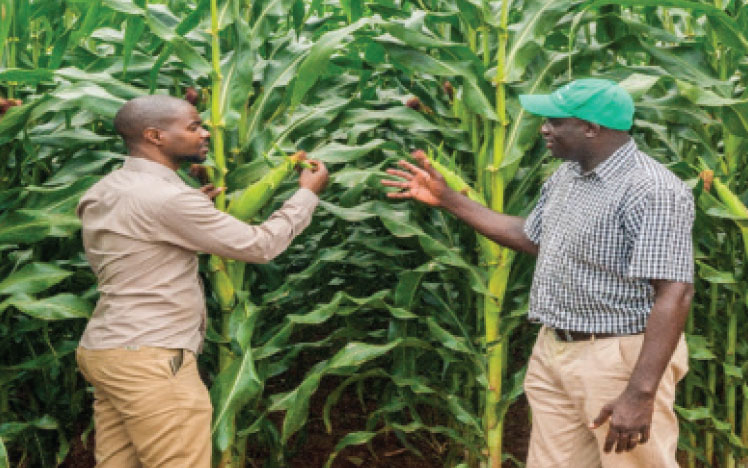Command Agric: Farmers call for tight selection criteria

Conrad Mwanawashe Business Reporter
FARMERS unions want a significant role in the selection, vetting and monitoring of beneficiaries under the Special Maize Programme, commonly known as Command Agriculture to ensure more transparency and accountability under the initiative.
Command Agriculture, an initiative planned by Government but implemented through private public partnerships, is expected to have had a positive impact on maize productivity and more than two million tonnes are expected.
A Maize Value Chain Conference held Friday, had stakeholders reaffirming their support for the initiative, describing it as a solution to the country’s grain challenges.
But for Command Agriculture to achieve its intended objectives, a few issues relating to inputs logistics and distribution efficiency, composition of the national taskforce and funding, among others require close attention.
Giving a testimonial at the Maize Value Chain Conference, Mr George Munangatire a farmer and member of the Zimbabwe Farmers Union said the Command Agriculture programme can boost grain production if stakeholders worked together. He said it can also strengthen private public partnerships.
But Mr Munangatire suggested that selection criteria and vetting process be tightened and wants farmers’ unions to be central in the initiative.
“The Command Agriculture national taskforce team should tighten selection criteria to make the programme more targeting,” said Mr Munangatire.
“Farmers’ unions should play a leading role in the taskforce team. Vetting should be completed by June. We had challenges last year when vetting took longer than expected,” he added.
Timely distribution of inputs is key so is the need to lure more funders into the initiative.
“Command agriculture national taskforce should ensure timely disbursement of complete inputs package, to start in July. Encourage participation of more private sector players in funding the programme,” said Mr Munangatire.
Also, Mr Munangatire said inputs collection points should be decentralised to bring them closer to farmers.
There is also need to capacitate farmers’ unions and Agritex to monitor the programme at farm level.
Already, the private sector has embraced and taken a leading role in the initiative expecting to increase support in the coming seasons. Grain Millers Association of Zimbabwe has committed to uptake 800 000 tonnes of maize from the command agriculture crop this year.
But, while supporting Command Agriculture, the corporate sector, farmers and other stakeholders, say the initiative should be cleaned of impediments which came to light in the 2016 /17 season, the first season to test the command agriculture initiative.
In the current season, the private sector, financed over 30 000 hectares of maize, sorghum and soya beans under contract farming and believes that if issues to do with availability of foreign currency to procure fertilisers are addressed capacity could be enhanced.
“Farmers have come to rely on the financial, technical and logistical support providers by contractors and many of these contractors could be model of how farmers’ productivity could be improved by targeted support schemes,” chairperson of the Grain and Oil Seed Traders’ Association of Zimbabwe Graeme Murdoch told the conference last week.
“There are unnecessary delays in processing the required licenses and permits and where any duty due is automatically being waived on any imports for the Government scheme, private contractors are struggling to get duty free imports for the same imports.
“This is particularly noticeable on nitrogen imports where several of the major private contractors growing wheat this year are yet to secure their AN or urea because they have not yet received duty free clearance on their requirements,” said Mr Murdoch.
“Fertiliser raw materials must continue to enjoy duty free status and the process of importing these must be streamlined and centralised. You have to go backwards and forwards between at least two ministries in order to import the exact same item and that is unnecessary waste of everyone’s time and resources.
Urea should be automatically duty free. It is not manufactured in Zimbabwe and its use by farmers should be and must be encouraged. AN requirements over and above that which can be realistically produced by Sable Chemicals must also be duty free,” he said.
Mr Murdoch said Government should consider the reintroduction of an agricultural rate for electricity.
“Government must also renew Zinwa charges. If you look very specifically at the wheat crop, your Zesa and Zinwa charges constitute anything up to 50 percent of your variable costs.
If those costs can specifically be subsidised we will automatically see a reduction in the cost of production and a commensurate in the necessity to subsidise the price at the end of the season,” he said.
Stakeholders believe that if the command agriculture initiative is cleaned and improved, production and productivity will co0ntinue on a growth path in the coming seasons.










Comments